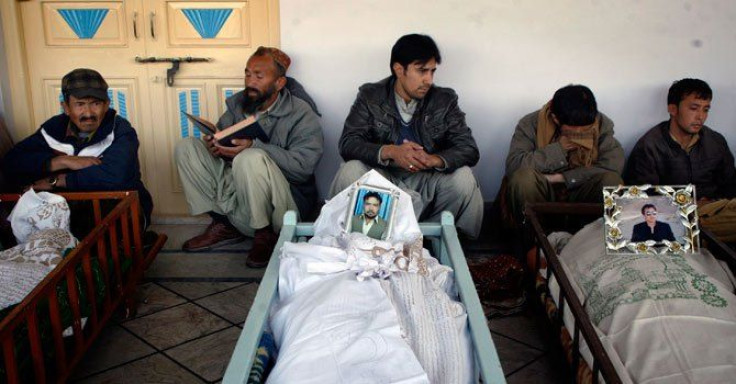Protect Us Better Or We Won’t Bury Our Dead: Shia Muslims To Pakistan Govt.

As a gesture of protest and defiance, Shia Muslim leaders in Quetta, Pakistan, are refusing to bury the nearly 100 victims of separate bomb blasts on Thursday, until military authorities provide better protection for the besieged community.
Shias, a minority sect in Pakistan, have suffered hundreds of deaths in recent years as militant extremists among the Sunni Muslim majority have waged a relentless campaign of violence against them. Thursday’s attacks were the deadliest single day of sectarian violence in Pakistan in five years.
For now, the Shias of Quetta, the capital of the restless Baluchistan province, many of whom are ethnic Hazaras originally from Afghanistan, blame the Pakistani military for the ceaseless carnage visited upon them.
Referring to General Ashfaq Kayani, a Shia leader in Quetta named Maulana Amin Shaheedi told a news conference: “I ask the army chief: What have you done with these extra three years you got [in office]? What did you give us except more death?”
Shias are calling for the military to take over security in Quetta -- otherwise the victims of Thursdays’ blasts will remain where they are, mostly lying along roads of the city.
A Quetta resident named Abbas Ali told the Associated Press: "This government has totally failed in protecting us. Somehow we will get compensation for our losses, but those who have gone away will not come back."
Under Islamic laws, a dead body must be buried as soon as possible.
Meanwhile, authorities in Baluchistan have called for a three-day period of mourning.
Ethnic Hazaras, who live in Iran, Afghanistan and Pakistan, are distinguishable by their Mongolian features (they are believed to be the descendants of the soldiers of Genghis Khan). Since 2001, untold hundreds have been shot at, bombed and stabbed in what appears to be a coordinated campaign of violence against this small ethnic group in Pakistan.
Some half a million Hazara live in Quetta alone.
Lashkar-e-Jhangvi (LeJ), an outlawed Islamic militant organization that claimed responsibility for the latest Quetta bombings has long threatened the entire Hazara community, warning them to leave the country. LeJ is linked to the Taliban.
“The LeJ operates under one front or the other, and its activists go around openly shouting, ‘infidel, infidel, Shia infidel’ and ‘death to Shias’ in the streets of Quetta and outside our mosques,” said Syed Dawwod Agha, a senior official with the Baluchistan Shia Conference, according to Reuters.
“We have become a community of grave-diggers. We are so used to death now that we always have shrouds ready.”
On the whole, last year was the bloodiest year for Shias in Pakistan in “living memory,” according to Ali Dayan Hasan of Human Rights Watch.
“More than 400 [Shias] were killed, and if yesterday’s attack is any indication, it is just going to get worse,” he said.
“[The Hazara] live in a state of siege. Stepping out of the ghetto means risking death. Everyone has failed them -- the security services, the government, the judiciary.”
The Human Rights Commission of Pakistan also condemned the attacks, but it blamed the government.
"If the government has any trepidation about its failure to stem the horrific spike in sectarian killings or the utter absence of its own writ, it has certainly done a good job hiding that," the group said, according to the Daily Telegraph.
The continuing sectarian violence in Pakistan might also make it impossible for the country to hold national elections scheduled for the spring.
"It will be very problematic to hold elections. People will be reluctant to go to the polls and political parties will have problems in organizing public rallies and corner meetings," said Talat Masood, an analyst in Islamabad.
© Copyright IBTimes 2024. All rights reserved.











